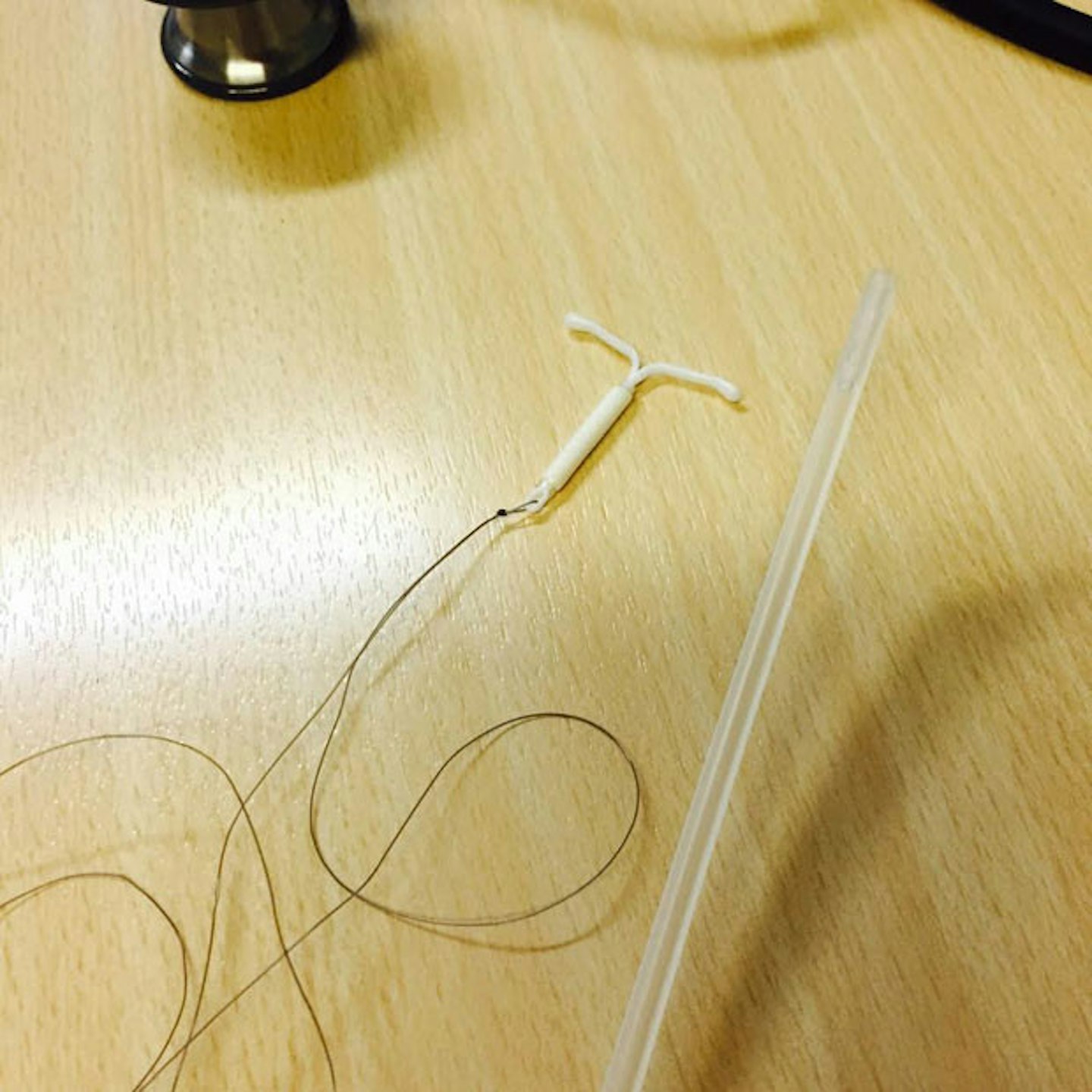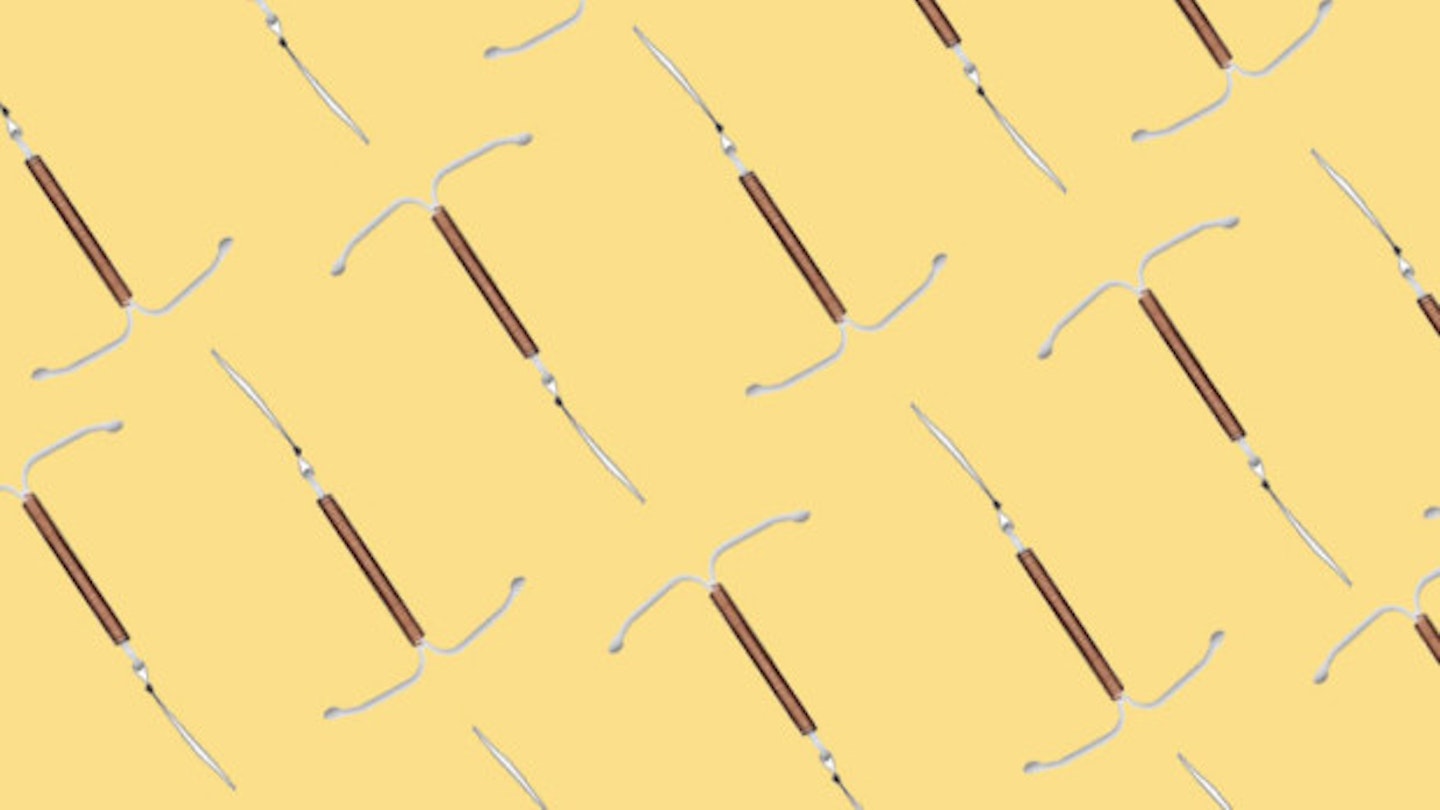The Pill was utterly groundbreaking. As women, this is virtually drummed into us at birth. It gave women a tiny bit of agency in their sexuality, careers and lives. It meant my grandmother could stop at six kids – the last one was born the year the Pill became available to married women). And it means that for us millennials negotiating boyfriends, careers and the fact that we probably won’t be in a position to have a child for a good decade, reliable safe contraception is seen as a fundamental right, not a privilege.
But last week I ditched the Pill, and joined 45,000 other women in the UK and had an Intrauterine System (IUS) fitted. The appointment took 20 minutes, I had it fitted at my GPs, and although I can’t claim I didn’t feel a thing (24 hours of medium to bad period pains), the whole experience was less stressful and intrusive than a really full-on bikini wax and it means that I’m protected from the risk of unplanned pregnancy for the next five years.
I may have been a bit slow to the party – long-term contraceptive devices are more popular now than ever. And use of IUS devices like mine among the under-25-year-olds has risen by 400% in the last nine years.
Today the Office of National Statistics released its latest data on how women are using contraception in the UK, which revealed that 31% of women are using Long Acting Reversible Contraception (LARC) – the injection, implant, IUS or IUDs – compared with 18% ten years ago.
I kind of knew it was a thing. More and more of my friends are ditching the Pill in favour of a more long-term contraceptive solution. But it was only when I asked my GP about it last week that I realised how far we’ve turned away from those tiny little packets with the days of the week written on them.
‘I’m definitely seeing more young people asking for the coil,’ she observed. ‘Actually, thinking about it, you hardly ever get young women coming in asking for the Pill any more.’

She was quick to point out that her fairly small constituency of patients in a fairly deprived area of London is hardly representative of the whole country, but what she’s noticed certainly seems to marry up to the latest stats.
So why are we turning off the Pill?
Hannah, a 27-year-old writer from London, was fitted with an IUD (Inrauterine Device – basically, it’s a coil, a bit like an IUS, but it doesn’t release hormones into your system) earlier this year.
‘I was on the Pill before, but it really made me not want to have sex, so I used condoms, but they’re horrible,’ she told The Debrief. ‘My friend had a coil, and I really liked the idea of having something that doesn’t involve hormones, so I made an appointment at the family planning clinic near my office.
‘I had to wait for five weeks, which was a bit annoying – the waiting list was massive – and when I went in, the waiting room seemed to be full of women like me, all waiting to get theirs fitted, too. I was a bit nervous because my friend Zoe told me that a girl at her school had one, and then became pregnant and the coil embedded in the baby’s head. I’ve since found out this is a pretty common urban myth.’
Hannah is broadly positive about her experience – the coil made her periods heavier for a while, but they’ve calmed down now. And she’s certainly not the only one of her friends who’s looking for alternative forms of contraception.
‘I just feel like we put so much shit in our bodies, this is one way we can avoid that a bit. Loads of my friends have stopped taking the Pill completely – the only problem is, they just use the pull-out method instead, which is completely stupid. They’re either too scared or too disorganised to get a coil fitted, when in reality it’s really not that big a deal.’
The Pill hasn’t exactly been getting the best press of late. ‘Have 800 Women Been Killed By The Pill?’ Screamed one headline in February. ‘Deadly Risk Of Pill Used by 1 Million Women,’ added another, helpfully in the same month. And frankly, it’s freaking some people out.
‘It genuinely scares me. I really believe it’s an enormous scandal that so many women have been pumping their bodies full of hormones without being given proper information on how it could affect their health,’ says Andrea, a 25-year-old teacher from Surrey.

‘I was on the Pill from when I was 14 or 15 all the way up until my second year at university. I went off it after asking a nurse at a GUM clinic if I should be worried about contraception increasing my risk of breast cancer (which runs in my family). She said that, yes, it could and I should probably go on something like the coil or the implant.
‘I’d been on a Pill that could increase my risk of breast cancer for nearly five years because it was the cheapest contraceptive (Microgynon) to dish out and no one had had any conversation with me to offer me an alternative.’
Jason Warriner is the UK Director of Quality and Clinical Services for Marie Stopes. He’s seen a marked rise in young women enquiring about alternative contraceptive methods (alternative to the Pill, that is). And as far as he’s concerned, it’s because we’re better informed than ever before.
‘We’ve definitely seen more enquiries around long-term contraception, but there’s a certain amount of myth-busting involved. Younger women are becoming more empowered around their health, contraception and lifestyle. Technology plays a massive role – she can download a Pill reminder app or a period tracker, or search online if she needs more information,’ he says.
According to Bayer Healthcare (whom we should point out have a vested interest in flogging as many contraceptive devices as they can to the NHS), clinical guidelines now ‘encourage the use of Long Term Contraceptive Devices in all women of reproductive age requiring contraception.’
But Karen Tait from Bayer’s press team believes there’s still a lot of work to be done in terms of awareness and education. ‘Results from some of our market research suggests that the poll may be a default option as many women are not aware of the other options available and many don’t realise there are actually two versions of the coil,' she says.
Equally studies have found that 84% of women are satisfied with their choice of LARC, compared with 53% of women using shorter-acting methods like the Pill.
Jo, 29, had an IUS fitted after falling pregnant and having an abortion four years ago. ‘I didn’t want to go through that again, and I’d already proven that the Pill isn’t completely reliable. The doctor told me it was the most reliable form of contraception going in terms of preventing pregnancy and I’ve stopped having periods completely, which is a great bonus.’
READ MORE: Ask An Adult: Is Spending My Entire 20s On The Pill Going To Mess Up My Body?
Not getting pregnant while on your preferred method of contraception might sound like a pretty basic request, but it’s an important one – it’s the reason why the Pill had such a groundbreaking impact on society in the first place. Yet one study found that women using the Pill are five times more likely to experience an unplanned pregnancy within their first typical year of use, compared to those using a LARC.
Equally, the CHOICE project in the US followed the contraceptive choices made by 10,000 women and discovered that when women received counselling on all available methods of contraception, two thirds then went on to chose a LARC method of contraception.
Similarly when Bayer asked women in the UK to describe their ‘ideal’ form of contraception they basically described the IUS or IUD (lasts longer, fewer hormones, doesn’t impact fertility). Despite this, most of the women questioned were still on the Pill.
So maybe the real question is, why don’t more of us have one? Bayer’s research suggests that endorsement from a woman’s GP is a large factor when it comes to contraception, and although LARC awareness is a priority for the Department of Health (in the long run, it’s cheaper for them), not everyone’s got the memo yet. The Pill is still given out as the default contraception of choice for millions of women, whether it’s the right thing for them or not.
This isn’t a love letter to the coil (although it’s started to sound a bit like one). There are plenty of women on the Pill who love it and will never have a single problem with it. But equally how many young women out there are looking for a viable alternative and not getting the right information?
The Pill was life changing for millions of women, and altered society in unimaginable ways. It gave a whole generation of women the opportunity to reshape what it means to be female. And 53 years later, we should have more choice for realiable, safe contraception than ever before – so what will the legacy of Generation Coil be?
**Liked this? You might also be interested in: **
Here’s Lena Dunham Explaining The Contraceptive Pill In Three Simple Tweets
Why Is It Still Unacceptable To Have More Than One Abortion?
Follow Rebecca on Twitter @rebecca_hol
This article originally appeared on The Debrief.
